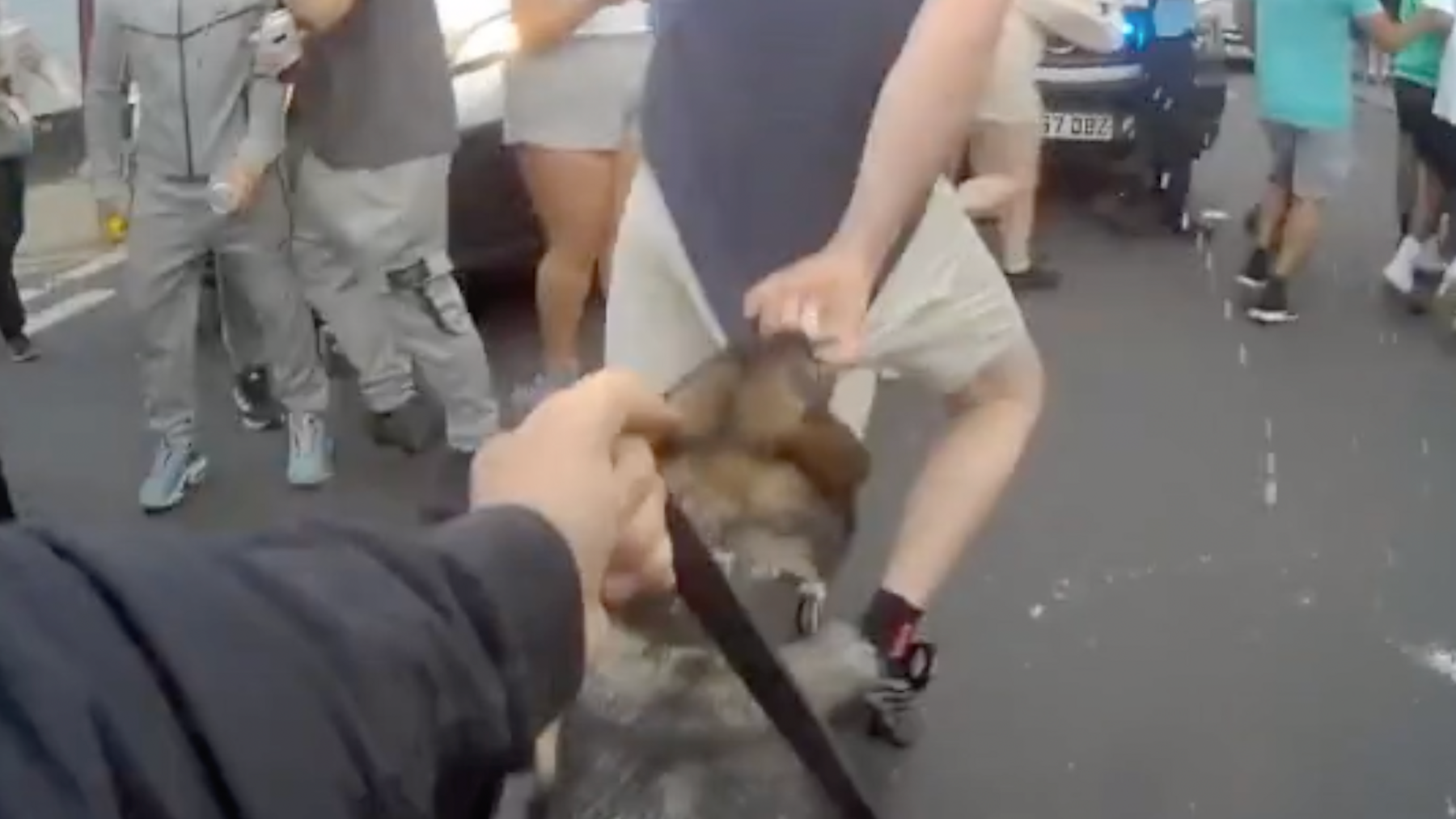Sunderland riots 'fuelled' others, police say
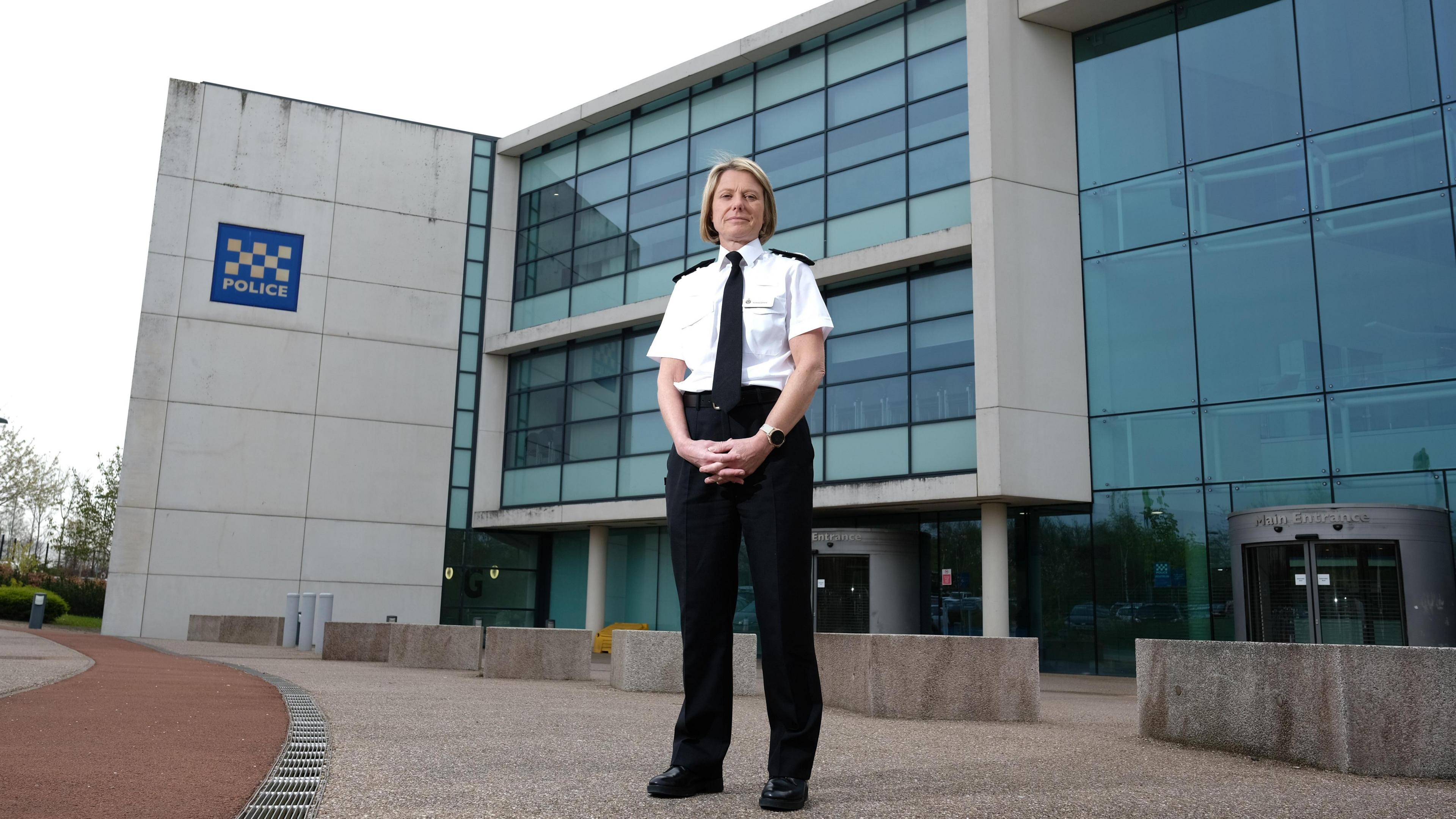
Northumbria Police's Chief Constable Vanessa Jardine said the disorder had cost the force more than £1m
- Published
Riots in Sunderland "fuelled and encouraged" others to carry out disruption across parts of the UK, police have said.
Northumbria Police's Chief Constable Vanessa Jardine said she was "confident" the violent disorder carried out on 2 and 3 August led to others to copy it elsewhere.
In the days that followed, disorder and rioting took place in areas including Middlesbrough, Darlington, Rotherham, Bolton, Birmingham and Belfast.
Ms Jardine said the violence had caused a "long-lasting detrimental impact" on communities, people and the force.
"During the course of the evening, our officers were met with serious and sustained levels of violence," she said.
"Officers, some very young in service, carrying out their duties of protecting the public, were ferociously attacked with missiles, including bricks, concrete slabs and scaffolding poles."
Four officers required hospital treatment for injuries that included fractured fingers, a head wound and a should injury.
Ms Jardine added: "I am confident that the violent disorder and criminality witnessed in Sunderland on 2 and 3 August has fuelled and encouraged others to participate in further disruption and disorder within both our community and across the nation."
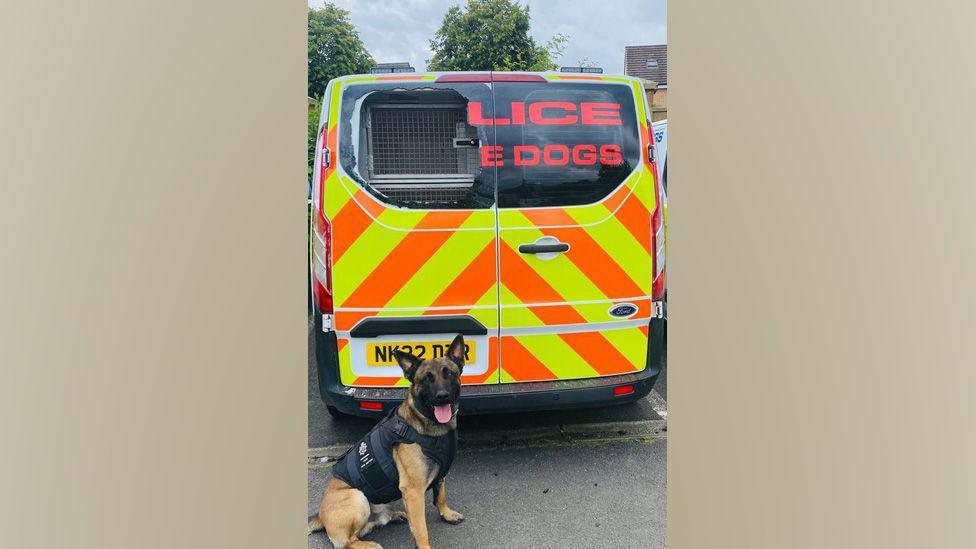
Police dog Creed was showered in glass when the police van's window was smashed
Ms Jardine said some of those injured were still unable to return to front line duty and the force was still trying to understand the "lasting psychological effects" the riots had on its officers.
Northumbria Police also estimated the damage caused to local businesses and charities would cost hundreds of thousands of pounds to repair.
The cost of policing the violence across the force area is estimated to be about £1.6m, it said.
Damage included a police office in Waterloo Place which was set on fire and seven police vehicles damaged during the riots.
This included a dog section van which had its bonnet pierced by a scaffolding pole and its rear window smashed. Shattered glass fell on a police dog inside the vehicle but the force later confirmed the animal - named Creed - was not injured.
Ms Jardine said: "I will continue to lead our hard-working force to deliver our mission of fighting crime and keeping people safe, despite the significant disruption and financial impact.
"Undoubtedly, the actions and unlawful activity that has taken place will impact upon future policing."
'Completely unacceptable'
Police were praised by councillors at an extraordinary meeting of the council on Wednesday evening.
Council leader Michael Mordey said: "Thank you seems inadequate in conveying to Northumbria Police how forever grateful we are for what they did on the evening of 2 August and what they continue to do."
Deputy leader councillor Kelly Chequer tabled a motion deploring the "completely unacceptable acts of crime and disorder" and emphasising that they were not at all representative of the city.
The motion also praised the overwhelming community response as one "very much representative of Sunderland - with people eager to help others and repair the damage".
The disorder across several towns and cities was sparked by the deaths of three young girls, who were stabbed while at a dance workshop in Southport.
The unrest was fuelled by misinformation online, the far right and anti-immigration sentiment.
Counter-demonstrators responded with a series of rallies, with thousands gathering on 7 August.
On Wednesday, the Crown Prosecution Service said a total of 389 people had been charged in relation to the disorder.
Follow BBC North East on X (formerly Twitter), external, Facebook, external and Instagram, external. Send your story ideas to northeastandcumbria@bbc.co.uk.
Related topics
More stories from BBC North East and Cumbria
- Published14 August 2024
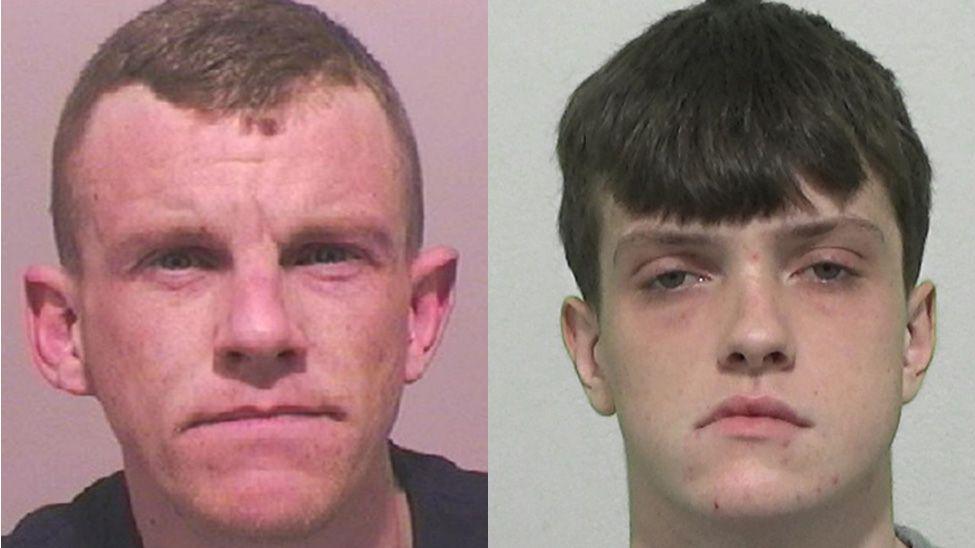
- Published9 August 2024
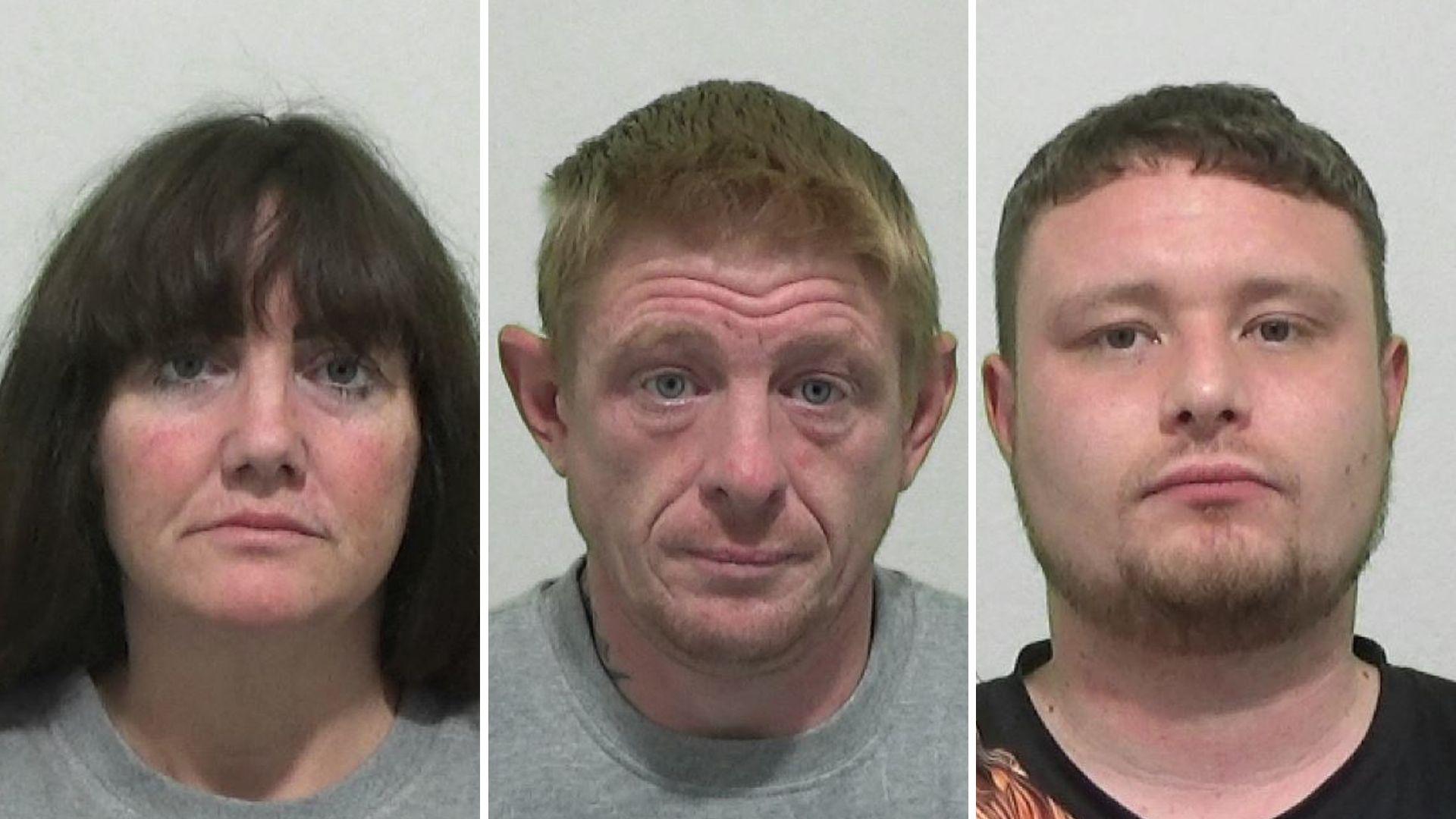
- Published12 August 2024
